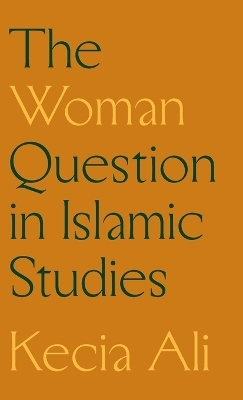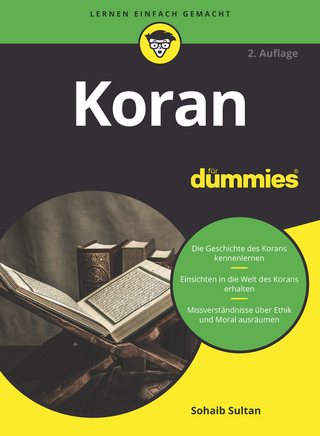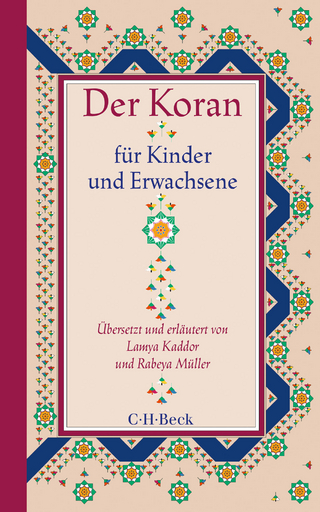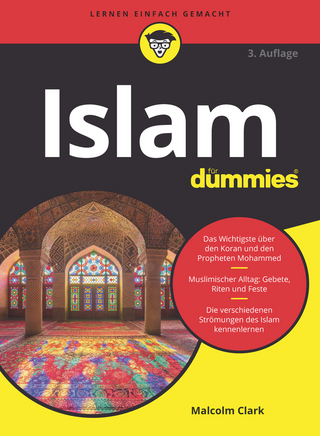
The Woman Question in Islamic Studies
Seiten
2024
Princeton University Press (Verlag)
978-0-691-18359-6 (ISBN)
Princeton University Press (Verlag)
978-0-691-18359-6 (ISBN)
- Lieferbar (Termin unbekannt)
- Versandkostenfrei innerhalb Deutschlands
- Auch auf Rechnung
- Verfügbarkeit in der Filiale vor Ort prüfen
- Artikel merken
The interconnected ways that sexism functions in academic Islamic studies and how to shift professional norms toward parity
Despite remarkable shifts in the demographics of Islamic studies in recent decades, the field continues to be dominated by men, who often relegate other scholars and their work—particularly research on gender—to its periphery, while treating subfields in which men predominate as more rigorous and central. In The Woman Question in Islamic Studies, Kecia Ali explores the interconnected ways that sexism functions in academic Islamic studies. Examining publications, citations, curricula, and media representations, Ali finds that, despite the growth and depth of scholarship on Islam and gender, men continue to overlook women’s scholarship, even in work that purports to discuss gender issues. Moreover, media and social media dynamics make talking about Islam and Muslims for broader audiences especially fraught for scholars who are not men, particularly when the topic is gender or sexuality.
Combining broad surveys with more focused analyses of a smaller set of texts, Ali shows that textbooks and syllabi continue to exclude women as historical actors and scholars and to marginalize gender and sexuality as subject matter. Finally, she provides a “Beginner’s Guide to Eradicating Sexism in Islamic Studies," offering practical strategies to help scholars avoid common pitfalls in their own work and contribute to broader professional transformations.
Despite remarkable shifts in the demographics of Islamic studies in recent decades, the field continues to be dominated by men, who often relegate other scholars and their work—particularly research on gender—to its periphery, while treating subfields in which men predominate as more rigorous and central. In The Woman Question in Islamic Studies, Kecia Ali explores the interconnected ways that sexism functions in academic Islamic studies. Examining publications, citations, curricula, and media representations, Ali finds that, despite the growth and depth of scholarship on Islam and gender, men continue to overlook women’s scholarship, even in work that purports to discuss gender issues. Moreover, media and social media dynamics make talking about Islam and Muslims for broader audiences especially fraught for scholars who are not men, particularly when the topic is gender or sexuality.
Combining broad surveys with more focused analyses of a smaller set of texts, Ali shows that textbooks and syllabi continue to exclude women as historical actors and scholars and to marginalize gender and sexuality as subject matter. Finally, she provides a “Beginner’s Guide to Eradicating Sexism in Islamic Studies," offering practical strategies to help scholars avoid common pitfalls in their own work and contribute to broader professional transformations.
Kecia Ali is professor of religion at Boston University. She is the author of The Lives of Muhammad, Imam Shafi‘i: Scholar and Saint, Marriage and Slavery in Early Islam, and Sexual Ethics and Islam: Feminist Reflections on Qur’an, Hadith, and Jurisprudence.
| Erscheinungsdatum | 22.08.2024 |
|---|---|
| Zusatzinfo | 1 b/w illus. |
| Verlagsort | New Jersey |
| Sprache | englisch |
| Maße | 140 x 216 mm |
| Themenwelt | Geisteswissenschaften ► Religion / Theologie ► Islam |
| Sozialwissenschaften ► Soziologie ► Gender Studies | |
| ISBN-10 | 0-691-18359-7 / 0691183597 |
| ISBN-13 | 978-0-691-18359-6 / 9780691183596 |
| Zustand | Neuware |
| Haben Sie eine Frage zum Produkt? |
Mehr entdecken
aus dem Bereich
aus dem Bereich


